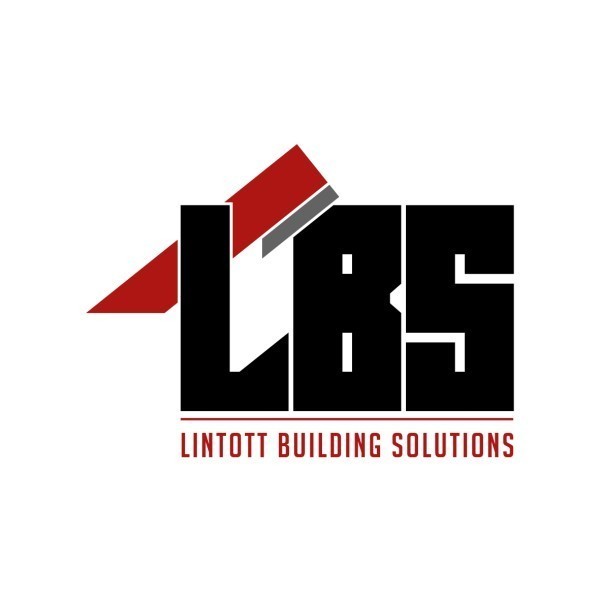Loft Conversions in Rochester
RF Property Maintenance & Building Ltd is a premier choice for all your building and maintenance needs in Perry... read more »
Dar Construction Services Ltd is a distinguished construction company nestled in Colyers, proudly serving the bustling c... read more »
Welcome to JC Construction Group Ltd, the premier choice for extension builders, loft conversions, and more in Langdon Hills and across E... read more »
Welcome to Kacey Carpentry, your go-to solution for exceptional carpentry and home improvement services in Bors... read more »
Welcome to BT Carpentry And Joinery, your go-to experts for all building and renovation needs in Eccles and across Kent. As a premier pro... read more »
Welcome to Garner Building Services, your trusted partner for all your building needs in Cellarhill and across Kent. As a family-run busi... read more »
J & J Builders Ltd: Premier Building Services in Barstable, Essex
Welcome to J & J Builders Ltd, your go-to expe... read more »
Welcome to John Boyns Carpentry, your go-to experts for all your building and carpentry needs in Coxheath and across Kent. As a family-ru... read more »
Welcome to LTLC Construction, your trusted partner for all your building needs in Silverhill Park and the surrounding areas of East Susse... read more »
Building Contractors UK is a premier construction company based in the charming village of Shorne West, offering a wide... read more »
Welcome to Marshalls Brickwork Ltd, your premier choice for construction services in Bearsted, Kent. As expert extension builders, drivew... read more »
Welcome to Lintott Building Solutions Limited, your premier choice for top-quality construction services in Eastwood and the wider Essex... read more »
Madison Builders: Premier Builders and Renovation Experts in Warmlake, Kent
Welcome to Madison Builders, your tr... read more »
DS Discount Builders Ltd is a premier choice for all your building and renovation needs in the bustling region of
Welcome to SP Bespoke Ltd, your premier choice for expert carpentry and renovation services in Stone Hill and through... read more »
Pro Build LDN LTD is a premier choice for building services in Bexley, London. Situated in the vibrant... read more »
Welcome to Teasdale Construction Ltd, your go-to experts for all construction needs in Charcott and across Kent. As a leading name in the... read more »
Wisdom Building Services Ltd is your go-to solution for all construction needs in |LOCATION| and the su... read more »
Top Mark's Carpentry Joinery and General Builders is a premier Southend-on-Sea-based business, renowned for its exceptio... read more »
Welcome to BelLace Construction Ltd, your go-to experts for all building needs in Rayleigh and across Essex. As a premier construction co... read more »
Search Loft Conversions in places nearby
Understanding Loft Conversions in Rochester
Loft conversions in Rochester are becoming increasingly popular as homeowners seek to maximise their living space without the hassle of moving. Whether you're looking to add an extra bedroom, a home office, or a playroom, converting your loft can be a cost-effective solution. In this article, we'll explore the ins and outs of loft conversions, providing you with the knowledge and confidence to embark on your own project.
The Benefits of Loft Conversions
Loft conversions offer a myriad of benefits, making them an attractive option for many homeowners. Firstly, they can significantly increase the value of your property. By adding an extra room or two, you not only enhance your living space but also boost your home's market appeal. Additionally, loft conversions are often more affordable than traditional extensions, as they utilise existing space rather than requiring new foundations.
Moreover, loft conversions can be tailored to suit your specific needs. Whether you need a quiet retreat for work or a vibrant playroom for the kids, the possibilities are endless. Plus, with the right design, a loft conversion can flood your home with natural light, creating a bright and airy atmosphere.
Types of Loft Conversions
There are several types of loft conversions to consider, each with its own unique features and benefits. The most common types include:
- Velux Loft Conversion: This is the simplest and most cost-effective option, involving the installation of Velux windows to bring in natural light. It's ideal for lofts with ample headroom.
- Dormer Loft Conversion: A dormer conversion involves extending the roof to create additional floor space and headroom. It's a versatile option that can be adapted to suit various property styles.
- Mansard Loft Conversion: This type of conversion involves altering the roof structure to create a flat roof with a slight slope. It's a more complex option but offers maximum space and flexibility.
- Hip-to-Gable Loft Conversion: Suitable for detached or semi-detached houses, this conversion involves extending the hip roof to create a gable end, providing more internal space.
Planning Permission and Building Regulations
Before embarking on a loft conversion in Rochester, it's essential to understand the planning permission and building regulations involved. In many cases, loft conversions fall under permitted development rights, meaning you won't need planning permission. However, there are exceptions, particularly if your property is in a conservation area or is a listed building.
Building regulations, on the other hand, are mandatory for all loft conversions. These regulations ensure that your conversion is structurally sound and safe for habitation. Key areas covered by building regulations include fire safety, insulation, and structural stability. It's advisable to work with a qualified architect or builder who can guide you through the process and ensure compliance.
Design Considerations for Loft Conversions
Designing a loft conversion requires careful planning to make the most of the available space. Start by considering the purpose of the conversion and how it will fit into your lifestyle. For instance, if you're creating a bedroom, you'll need to think about storage solutions and access to natural light.
Another important consideration is the staircase. The location and design of the staircase can have a significant impact on the overall layout of your home. It's crucial to choose a design that complements your existing decor while providing safe and easy access to the loft.
Finally, don't forget about the finishing touches. From lighting and flooring to paint colours and furnishings, these elements can transform your loft conversion into a stylish and functional space.
Choosing the Right Contractor
Selecting the right contractor is crucial to the success of your loft conversion project. Start by seeking recommendations from friends and family or searching online for reputable contractors in Rochester. Look for professionals with experience in loft conversions and check their credentials and references.
Once you've shortlisted potential contractors, arrange consultations to discuss your project in detail. Ask about their approach, timelines, and costs, and ensure they provide a detailed quote. It's also important to establish clear communication from the outset to avoid misunderstandings and ensure a smooth process.
Cost of Loft Conversions in Rochester
The cost of a loft conversion in Rochester can vary significantly depending on the type of conversion, the size of the space, and the level of customisation required. On average, you can expect to pay between £20,000 and £50,000. However, more complex conversions, such as mansard or hip-to-gable, may cost more.
It's important to budget for additional expenses, such as planning fees, building regulations approval, and any unforeseen costs that may arise during the project. To get an accurate estimate, obtain quotes from multiple contractors and compare their offerings.
Maximising Space in Your Loft Conversion
Maximising space is a key consideration in any loft conversion. Clever design solutions can help you make the most of every inch of your new space. Consider built-in storage options, such as fitted wardrobes or shelving, to keep the area clutter-free.
Utilising the eaves for storage is another effective way to maximise space. Custom-built cupboards or drawers can be installed in these areas, providing valuable storage without encroaching on the main living area.
Finally, think about the layout of the room. Open-plan designs can create a sense of spaciousness, while strategically placed furniture can enhance the flow and functionality of the space.
Lighting Solutions for Loft Conversions
Lighting plays a crucial role in the overall ambience and functionality of your loft conversion. Natural light is always preferable, so consider installing large windows or skylights to brighten the space. Velux windows are a popular choice, offering excellent insulation and ventilation.
For artificial lighting, a combination of overhead lights, task lighting, and accent lighting can create a well-balanced and inviting atmosphere. Consider dimmable lights for added flexibility and energy efficiency.
Don't forget about the importance of electrical outlets and switches. Plan their placement carefully to ensure convenience and accessibility.
Insulation and Energy Efficiency
Proper insulation is essential for maintaining a comfortable temperature in your loft conversion and reducing energy costs. Insulating the roof, walls, and floors will help keep the space warm in winter and cool in summer.
There are various insulation materials to choose from, including fibreglass, foam, and reflective foil. Each has its own advantages, so it's important to select the right option for your specific needs and budget.
In addition to insulation, consider energy-efficient windows and doors to further enhance the thermal performance of your loft conversion. These features can contribute to a more sustainable and cost-effective home.
Addressing Common Challenges in Loft Conversions
Loft conversions can present a range of challenges, but with careful planning and expert guidance, these can be overcome. One common issue is limited headroom, which can restrict the use of the space. To address this, consider options such as lowering the ceiling of the floor below or opting for a dormer conversion to increase headroom.
Another challenge is ensuring adequate ventilation. Proper ventilation is crucial to prevent condensation and maintain air quality. Consider installing roof vents or mechanical ventilation systems to keep the space fresh and comfortable.
Finally, soundproofing is an important consideration, particularly if the loft conversion will be used as a bedroom or office. Soundproofing materials can be added to walls, floors, and ceilings to minimise noise transfer and create a peaceful environment.
Case Studies: Successful Loft Conversions in Rochester
To inspire your own project, let's take a look at some successful loft conversions in Rochester. One homeowner transformed their unused attic into a stunning master suite, complete with an en-suite bathroom and walk-in wardrobe. By incorporating large skylights and a neutral colour palette, they created a bright and serene retreat.
Another family converted their loft into a multifunctional space, combining a home office with a cosy reading nook. Clever storage solutions and a mix of textures and patterns added character and functionality to the space.
These case studies demonstrate the potential of loft conversions to enhance both the aesthetics and functionality of a home, providing valuable insights for your own project.
Frequently Asked Questions
- Do I need planning permission for a loft conversion in Rochester? In most cases, loft conversions fall under permitted development rights, so planning permission is not required. However, there are exceptions, so it's best to check with your local council.
- How long does a loft conversion take? The duration of a loft conversion can vary depending on the complexity of the project, but it typically takes between 6 to 12 weeks.
- Can I convert my loft if I have a trussed roof? Yes, it's possible to convert a loft with a trussed roof, but it may require additional structural work to support the new space.
- Will a loft conversion add value to my home? Yes, a well-executed loft conversion can significantly increase the value of your property, often by more than the cost of the conversion itself.
- What is the minimum headroom required for a loft conversion? Building regulations require a minimum headroom of 2.2 metres for a loft conversion, although this can vary depending on the specific circumstances.
- Can I live in my home during the loft conversion? In most cases, you can continue to live in your home during the conversion, although there may be some disruption.
Final Thoughts on Loft Conversions in Rochester
Loft conversions in Rochester offer a fantastic opportunity to enhance your living space and add value to your home. With careful planning, expert guidance, and a clear vision, you can transform your loft into a beautiful and functional area that meets your needs and complements your lifestyle. Whether you're looking to create a peaceful retreat, a productive workspace, or a vibrant playroom, the possibilities are endless. So why not take the plunge and explore the potential of a loft conversion for your home?

























